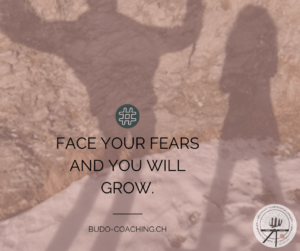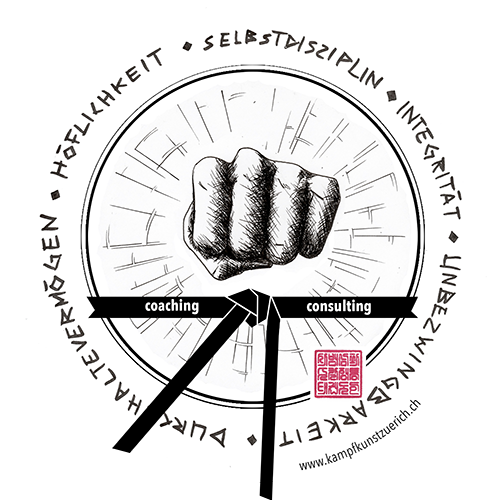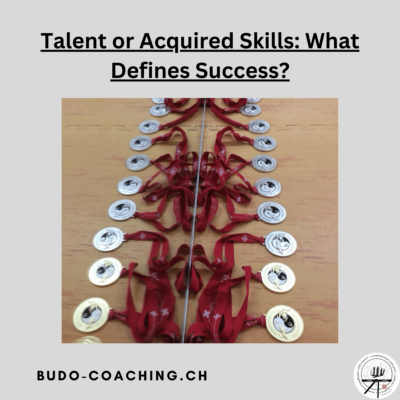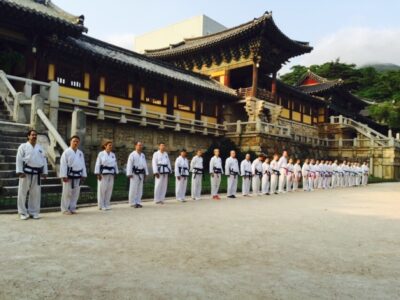What defines successful people? Maraike is a very smart and capable individual but early this…

Fear of change: how to overcome it and grow
Fearing change is normal; everyone has to deal with it at some point. People fear the consequences of change because we know what we are leaving behind but not what to expect.
However, there are ways to prepare yourself to overcome this fear and embrace change rather than fear it.
Consider fear as an ally
Fear is an important basic emotion and very helpful because fear allows us to react to dangers and decide on the best response to protect ourselves. However, there can be moments in life when fear predominates, blocking us in important situations and spoiling events that we should actually be looking forward to.
How we deal with fear is therefore crucial.
Consider fear as an important ally.
Think about it: what keeps you safe in a real dangerous situation? That’s right, fear, our natural defence mechanism that puts us on high alert. Fear reactions release hormones that provide us with the energy to handle threatening situations. This makes us more focused, stronger, faster, and more powerful.
Therefore, we should not suppress fear but rather feel it to understand what it is trying to convey to us – consider fear as an ally that compels us to act and react.
When does fear become a hindrance?
When fear takes over, it prevents us from achieving goals. We become overly cautious and miss “the moment”, keeping ourselves stuck in the past or rushing into the future with worries that may never materialize.
But why does change make us so fearful that it becomes paralyzing?
We fear the consequences of change because we don’t know what to expect; changes force us out of our comfort zone; they mean leaving familiar paths. Especially when our mind has only one thing in mind: our safety.
On the one hand, we are programmed to flee from uncertainty. On the other hand, our mind seeks growth. The mind is flexible, adaptable and wants to break barriers.
The fear of change is based on stories, both real and imaginary, that we tell ourselves. Often, the scenarios we imagine are dictated by the fear of change, which keep us from growing. When this happens, it is possible to train the mind to embrace the positives in change and face it with confidence.
Learning some simple techniques can help recognise the patterns behind our fears and go past and beyond them, into a more open and positive response.
Change means growth
When we accept and go through changes – the unknown – we make the unknown familiar, gain experiences, and realize that we can handle more than we think. And we grow.
Take the time to reflect on the following:
- Identify the source of your fear at work. Is it workload, dealing with colleagues or superiors or rather fear of failure, or a sense of overwhelm?
- What triggers your fear?
- When do you start feeling uneasy and blocking?
- How does your body react when you’re afraid?
These insights about yourself are an important first step. If you can name your fears, you can confront them and learn to regulate your reactions.
- How do you handle stress?
Fear triggers stress reactions. These reactions vary from person to person; consequently, stress coping strategies vary as well. Find out what helps you reduce fear and improve your stress resistance.
Take care of your mental and physical well-being. Through exercise, breaks, and hobbies that relax and inspire you, you supply yourself with positive energy and equip yourself for the pressure that comes your way in daily life.
- What about your mind-set?
Changes are often triggered by external circumstances and occur when we least expect them. Your boss announces a reorganization overnight, you get a new supervisor with entirely different expectations than the previous one, all of which can cause overload for you and trigger stress reactions. In these situations your mind-set is crucial. Look back and see all the obstacles you overcome so far and call to mind all the resources you have to help you cope with a ever-changing work environment.
A stressor for a fighter just before the fight begins is the opponent’s signs, verbal and physical, that he is going to strike. In this case, the fighter has to convert the adrenaline rush into breathing and calm, focus his thoughts and assess the distance to the opponent. By concentrating inwardly and breathing calmly, he is physically ready to react and act appropriately. Without these, he would not be able to control his muscles, his strength and reflexes and would put himself in a disadvantageous situation.
His preparation beforehand is crucial. The fighter knows that he can rely on his resources, meaning techniques and skills, and trust that he can use them at the right moment. Assuming he knows his own weaknesses and strengths and has full body awareness.
Self-Reflection and awareness are key
When facing a change, take the time to observe your thoughts carefully and ask yourself:
- Will I be able to handle this change?
- If not, what is the worst that could happen?
- Am I avoiding learning or doing something out of fear of disappointment or embarrassment?
- Do I feel that a failure will label me as a loser or make others see me as less valuable?
- Do I have enough resources to deal with this situation? And if not, where can I find support?
This is what ancient Asian philosophy is about – it’s more about being in a flow with the existing system, making the best of it with the available resources in the current situation.
When we react rigidly to changes, we feel overwhelmed, uncertain, and cannot keep up because they happen anyway.
With mental flexibility, on the other hand, we can adapt quickly and effectively to new circumstances. Flexibility helps us to adjust to new working conditions, relationships, or environments and enables us to solve problems, overcome obstacles, and become more resilient as a result.
Seen in this way, resilience manifests itself in both the body and the mind as a flexibility competency that allows us to be more resistant, adaptable, and sovereign when facing something new.
Asian martial arts are based on this principle – change is part of the path because change is the only constant in life.
Every change always brings growth and opportunities with it. Everything has its place, even the stumbling blocks placed in our way. There is no joy without sorrow, no success without failure. The medal always has two sides (read also Strengthen your resilience with martial arts and develop a positive mindset.)
These are words of wisdom from Confucius :
“Man has three ways
to act wisely:
First, by reflection:
This is noblest.
Second, by imitation:
This is the easiest.
Third, by experience:
This is the bitterest.”
We should not resist change because change will happen whether we want it or not – and fortunately, because without change, there is no progress, no growth, and no development.
So, the next time fear grips you at work, don’t let it overwhelm you. Take a moment to pause, take a deep breath, and consider what good it could bring and what solutions you could imagine for it. 👉 Shift your focus to the benefits.
These tips can be helpful:
Tip 1
Learn something new, like a language or a game. Invest in your professional development and education. Acquiring new skills boosts self-confidence and reduces fears of professional stagnation.
Tip 2
Try to look at situations from different perspectives. Imagine how other people might see things to expand your understanding.
Tip 3
Be open to new ideas and opinions. Discuss with others who have different views to broaden your own thinking and possibly discover alternative approaches. Don’t hesitate to ask for help if you feel overwhelmed.
Tip 4
Regularly train your mental and physical flexibility! Work on your physical flexibility, for example, with stretching exercises or gentle martial arts like Kimoodo (Korean Tai Chi), and experience how expanding your range of motion affects your mental attitude. Give it a try!
In today’s fast-paced job market, workplace pressure often affects our personal lives and causes stress and anxiety. Understanding and dealing with this stress means protecting your mental and physical well-being and thus navigating daily life in a more balanced way.
In need of support?
Fear is a topic we also cover in our self-assertion courses – we are happy to support you on your exploration journey, on your path to more self-efficacy, so that you are fuelled with the necessary energy, courage, and strength to cope.



